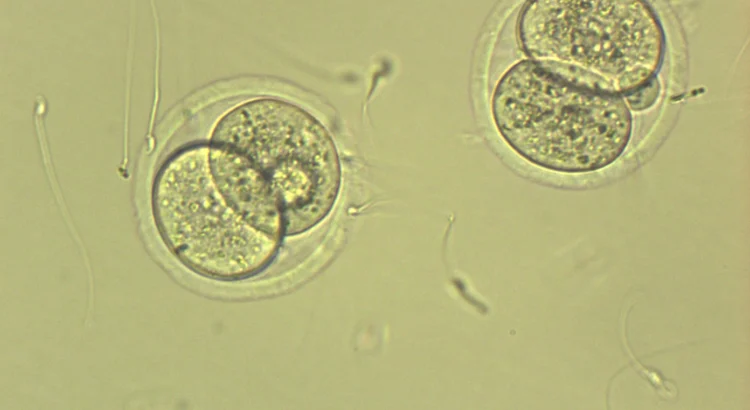Increased susceptibility to obesity in women contributes to their fertility problems, our scientists have shown. Their research focused on the molecular mechanisms responsible for the proper functioning of the female reproductive system. The results have just been published in the journal Molecular Metabolism.
– We know that obesity in women is associated with infertility, and this is due to disturbances at many levels. We are concerned with understanding these mechanisms at the molecular level, that is, inside the cells. In our work, we focus on ovarian dysfunction, which is not only a storehouse of egg cells, but also a site for the production of oestrogens – key fertility hormones – says Dr Karolina Wołodko from the Fertility and Development Programming Team.
OBESITY AND INFERTILITY
In order to look at the changes at the molecular level that occur in the reproductive system, particularly in ovarian cells, Dr Karolina Wołodko – together with a team led by Dr Antonio Galvao – conducted her observations on two strains of mice with different susceptibility to obesity. – We wanted to reflect the tendencies observed among people when some find it easier and others find it more difficult to gain weight – explains the researcher. Both groups were fed a high-calorie diet.
– We found that the group that gained weight sooner (i.e. the one prone to obesity) also showed abnormal ovarian processes associated with a decrease in hormone production. We also observed elevated blood levels of, among other things, leptin, which is characteristic of obesity and also greatly affects reproductive capacity. There were no such changes in the second group – says the biotechnologist.
The researchers then examined what changes occurred in the ovarian cells. – In the obesity-prone group, these changes were significant. One of the most important findings is the characterisation of changes in the cells of the ovarian follicle sheath, which led to a decrease in the production of the steroid hormone oestrogen, which is very important for the proper functioning of the entire reproductive system. Moreover, we have demonstrated the influence of factors hitherto unrelated to hormone production – explains Dr Karolina Wołodko.
Furthermore, based on the results from the obesity-resistant group, the researchers showed that eating a high-fat diet alone does not lead to changes at the level of the reproductive system, as suggested by some previous scientific studies. – The key here, however, is weight gain – the researcher emphasises.
URGENCY
– By understanding the underlying mechanisms and disorders that lead to infertility in obese women, it will be possible to address the problem in the future by developing new therapies. Of course, further basic research is needed, and then also those at the clinical level – says Dr Karolina Wolodko.
She adds that the scale of the problem is significant and still growing. – Already one in six couples trying to have a child is struggling with infertility. In parallel, the number of people who are overweight and obese is increasing, which also affects the functioning of the reproductive system – she points out. Furthermore, in her opinion, the topic of research into understanding the molecular mechanisms involved in the female reproductive system is still receiving insufficient attention in global science. – So far, most of the research around reproduction has focused on males and sperm, who are an easier model to study. Further, too little attention has been paid to the study of females and their reproductive system, which, however, is much more complex – concludes the scientist.
